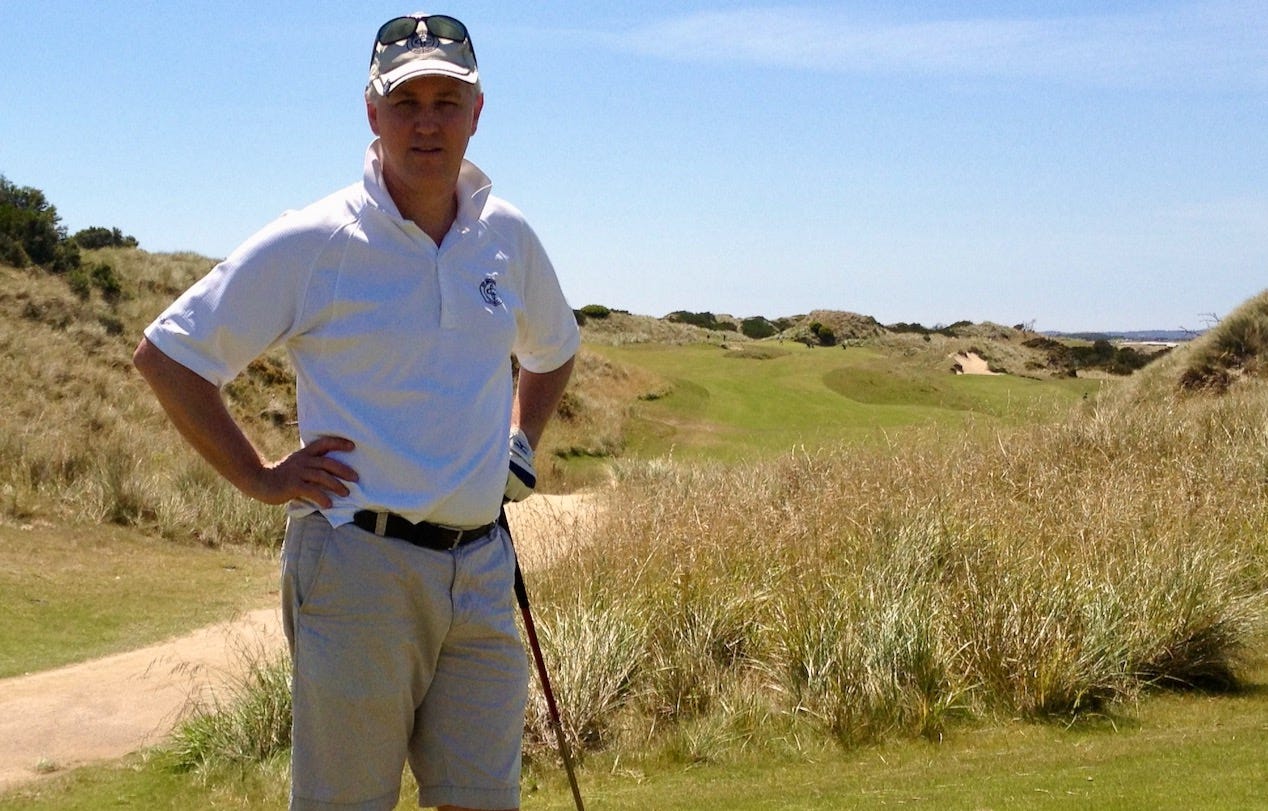This is the second in a little series of holiday reflections about golf and the Christian life. Feel free to share them with your friends.
When Fijian golfer Vijay Singh stepped onto the first tee for the final round of the 1998 USPGA, he was setting out on the most important 18 holes of his life. He was tied for the lead with Steve Stricker. They were both trying to win their first Major.
Earlier that morning, Singh’s young son had farewelled him with a simple message, which Vijay wrote on a piece of paper and pinned to his golf bag.
“Papa,” it said, “trust your swing.”
Vijay did exactly that, and won his first Major.
It's one of the paradoxes of golf. The more you think about the shot in front of you, the more you worry about what might happen, the harder you try to avoid all the disasters that might befall you, the more likely you are to send the ball scuttling off at 45 degrees into the bushes. Anxiety, tension, thinking too much, fear of failure—these are all fatal to good golf.
The good golfer practises until he has a swing that he can repeat with a fair degree of reliability. And then, when he stands over the ball, he goes into his regular routine and repeats that swing, trusting that it will work for him, as it has countless times before.
But trusting your swing requires mental courage.
You stand over the ball and look up at your target. The flag is 170 metres away, into a stiff breeze, across a lake, with bunkers everywhere. At that moment, it seems hard to believe that a smooth, relaxed, back-and-through swing will give you the best chance of hitting the green. Anxiety starts whispering in your ear. Your hands grip the club a little tighter. You struggle to stay calm as you take the club back. And then at the top of the backswing, some part of your lizard brain initiates a violent downward thrashing motion, as if you are trying to kill a snake.
The result is a predictable piece of self-sabotage.
Didn’t trust the swing.
Staying calm and trusting the swing is the rational thing to do. It yields the best results. But it's still hard to do when the heat is on, and your playing partners are watching, and all the memories of previous disasters are flooding into your mind.
In the Bible, ‘faith’ in God is trusting your swing.
It’s relying on what we know to be true about the supremely good, supremely powerful God who has loved us in Jesus Christ. We know that God is reliable and good and generous. We know it from how he has acted, not only in the history of Israel and supremely in Christ, but also in our own lives. We know that trusting God always turns out for the best, because he has promised that he will always work for our good—and we know that he always keeps his promises.
But trusting God is also an act of mental courage.
We know that God is supremely trustworthy. But it’s amazing how often we find ourselves standing over the ball, paralysed by the obstacles in front us, gripped by anxiety, and worried about what others will think of us. Some irrational part of our sinful brain screams at us to trust our instincts, or what everyone else is saying, rather than to stay calm and trust God. And so against all sense, we self-sabotage our way to another disaster.
Trusting God is not some mystical quality or some non-rational leap into the dark. Trusting God’s word is always the most rational, the most sensible, the most effective thing to do. It always turns out best, not only because God’s ways are so good, but because God’s promise is unshakeable.
All we have to do is trust.
If only I could remember that on the first tee.
PS
This is a free public edition of The Payneful Truth. To sign up as a partner and receive every edition every week, just hit the subscribe button below. (And to find out why I have this partner scheme, see this explanation.)
And this week’s image is one of me at Barnbougle Dunes, one of the top-rated golf courses in the world, located just outside the little town of Bridport in north-east Tasmania. Definitely a course where you need to trust your swing!











